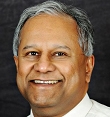Imagine Halifax city’s whole population of around 400,000 being denied the right to vote in its municipal election. Not very hard to picture considering that is the number of Toronto residents who pay local taxes and use city services but have no say in who represents them because they are not yet Canadian citizens.
This disenfranchisement was debated at a panel discussion on voting rights for permanent residents in municipal elections organized in Toronto on Mar. 20 by the Ontario Council of Agencies Serving Immigrants and Thorncliffe Neighbourhood Office.
Although not a new topic, the impetus for the discussion was a recent City of Toronto Community Development and Recreation Committee’s request to review “the opportunity” of giving permanent residents the right to vote. It is significant to note that the City of Toronto Act already says that the people who compose it are not defined by their age nor by their nationality. Rather, they are defined by residency within the city’s boundaries.
The panelists were near unanimous in their approval of the need to extend voting rights to non-citizens. They remained united despite the moderator, Matthew Mendelsohn, Director of the Mowat Centre, trying to provoke discussion by pointing out, for instance, that it is “not hard to become a citizen of Canada”.
‘Training wheels’
Jehad Aliweiwi, executive director of the Thorncliffe Neighbourhood Office, said voting right could be a reward given to immigrants who have uprooted themselves to come and settle in Toronto. “That act in itself is their show of commitment to the city,” he said. “Participating in municipal elections could be akin to giving permanent residents training wheels as they negotiate the path to citizenship”.
Association of voting with citizenship is more of a political view that prevents the real expression of Toronto’s diversity, Aliweiwi said. “There is nothing radical in giving non-citizens the right to vote and it is unfortunate that Toronto is not in the forefront.”
Michael Pal, a research fellow at the Mowat Centre, said votes of immigrant communities, who tend to live in urban areas, are valued less than that of long time citizens. Permanent residents should be given voting rights from a legal and moral point of view and the move should be part of a broader conversation, Pal said.
Myer Siemiatycki, professor of politics and public administration at Ryerson University, said one in six to seven Torontonians are not citizens and the pattern is repeated in the other municipalities that make up the Greater Toronto Area (GTA). There is no downside to giving non-citizens the right to vote, Siemiatycki said. “It is the right of cities not to be hostage to provincial and federal politics,” he said.
Lame objections
Nathalie Des Rosiers, general counsel of the Canadian Civil Liberties Association, said disadvantages of giving non-citizens the right to vote are minimal and Toronto which is proud of its diversity should take a proactive role in ensuring that permanent residents get the chance to vote in city elections. “The reasons cited against the move echoes those made decades ago against giving women the right to vote”, Des Rosiers said.
With about 40 cities (including a few Canadian ones) extending voting rights in some way or the other to non-citizens, not allowing immigrants to vote will further reduce the already diminished status of the GTA as a preferred place to put down roots, the panelists summarized. Their message: in this age of enhanced migration and increasingly free trade of goods, voting rights should also be easily transferable.
It reinforces an ambitious 2005 study of social inclusion in Toronto that said extending the municipal franchise was essential to advancing democracy and belonging in the city. The Report of the Toronto Civic Panel of the Inclusive Cities Canada Initiative contended that in order to overcome widespread marginalization from the city’s political processes, the civic voting age should be lowered from 18 to 16, and non-Canadian permanent residents should also have the right to vote.
As Siemiatycki said in a policy paper he wrote on the subject, the time has come to go back to the future. “The western concept of citizenship began as municipal attachment to the city-state in ancient Greece. Now, with global migration increasingly creating a world of ‘transnational urbanism’, the momentum is growing to re-define cities as sites of citizenship in their own right.” – New Canadian Media
Ranjit is a Toronto-based writer with interest in Canadian civic affairs, immigration, the environment and motoring. Maytree and Al Jazzera English alumnus.





